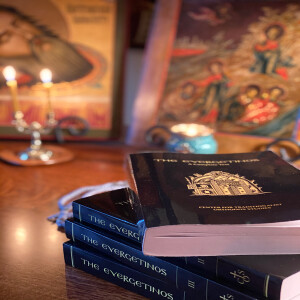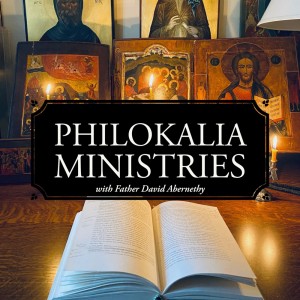
In our reading of the Evergetinos, we picked up with Hypothesis 20 “On Obedience and Listening to the Advice of Elders.” We are presented with the story of one monk, Iakovos, who was filled with impertinence and sought to place himself above others as a spiritual guide; this despite his lacking the fruit or obedience in his own life. The darkness and the trials of this monk grow deeper and deeper. The more resistant that he is to the guidance of others the more that the spirit of darkness takes hold of him. Then, in his moment of greatest weakness, the Enemy attacks him in such a way that he is overcome with a flood sinful thoughts. Taking matters into his own hands, rather than humbling himself before his Elder or before God, he mutilates himself. It is only the meekness and the compassion of the Elder that aids this monk in his darkness. Saint Savvas was able to apply a healing balm on every occasion of disobedience. Over and over again he applies the necessary remedy and offers intercession on behalf of his spiritual child.
The vivid imagery in this Hypothesis is meant to draw us into a deeper and more rich understanding of obedience and its importance for the spiritual life. Our willfulness can run so deep that we find ourselves wrapped in delusion. Left to ourselves we are capable of the worst. We can betray ourselves as well as God. May God in His mercy guide us along the path of repentance and give us the grace and healing of obedience.
---
Text of chat during the group:
More Episodes
 2024-07-29
2024-07-29
 650
650
 2024-07-22
2024-07-22
 601
601
 2024-07-09
2024-07-09
 689
689
 2024-07-09
2024-07-09
 492
492
 2024-06-24
2024-06-24
 838
838
 2024-06-17
2024-06-17
 629
629
 2024-06-12
2024-06-12
 554
554
 2024-06-04
2024-06-04
 694
694
 2024-05-27
2024-05-27
 699
699
 2024-05-20
2024-05-20
 694
694
Create your
podcast in
minutes
- Full-featured podcast site
- Unlimited storage and bandwidth
- Comprehensive podcast stats
- Distribute to Apple Podcasts, Spotify, and more
- Make money with your podcast
It is Free
- Privacy Policy
- Cookie Policy
- Terms of Use
- Consent Preferences
- Copyright © 2015-2024 Podbean.com




